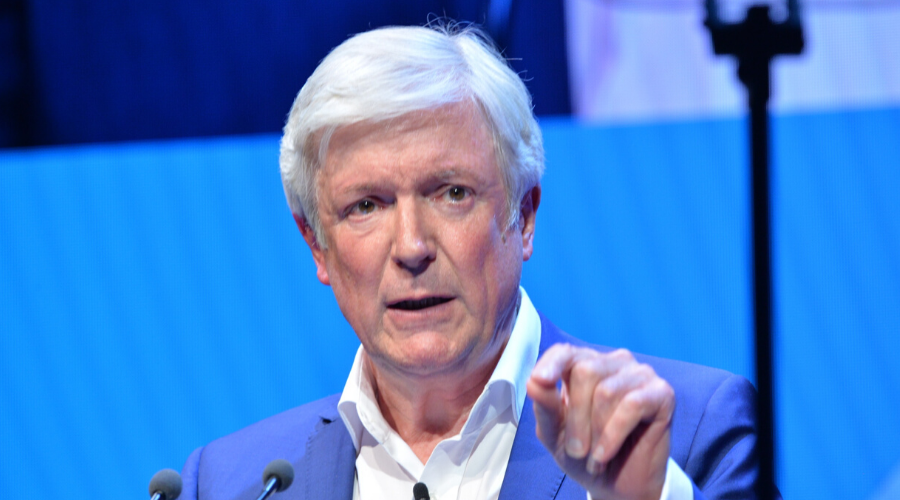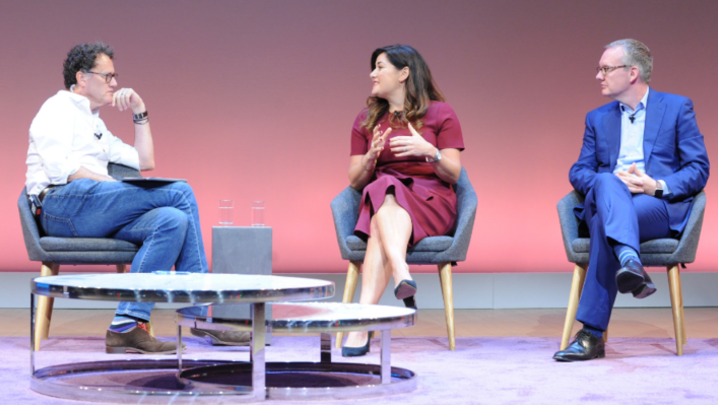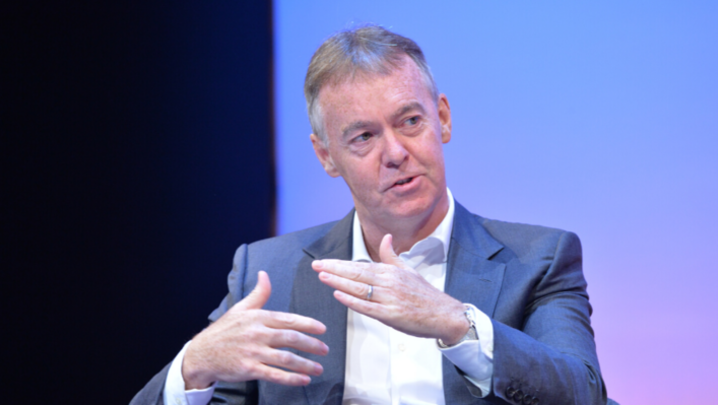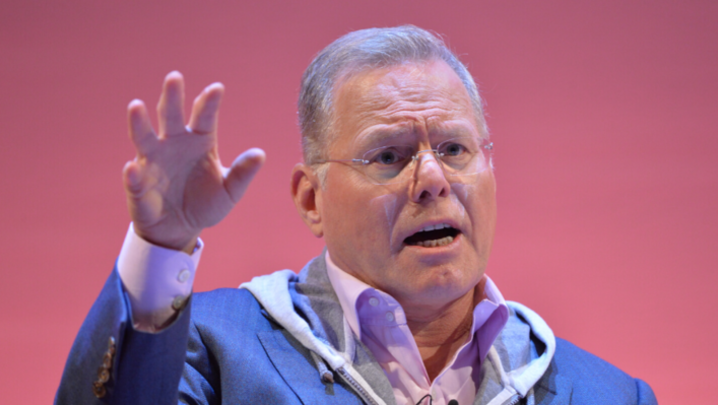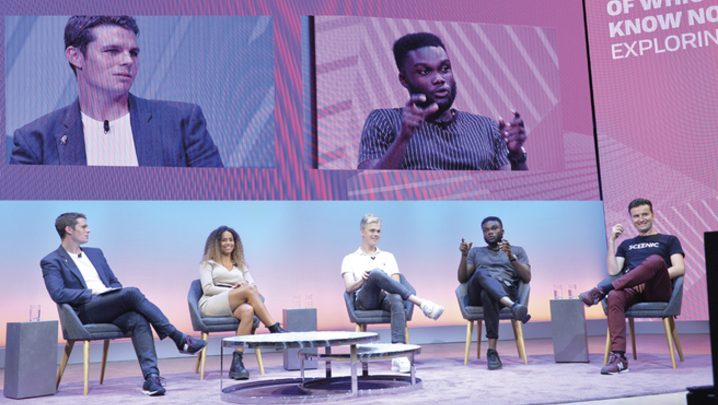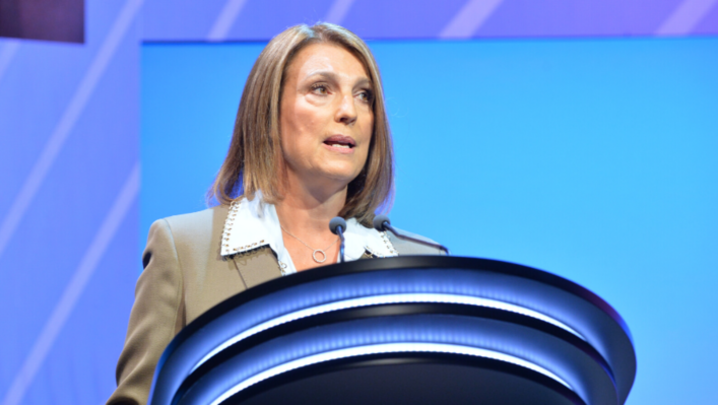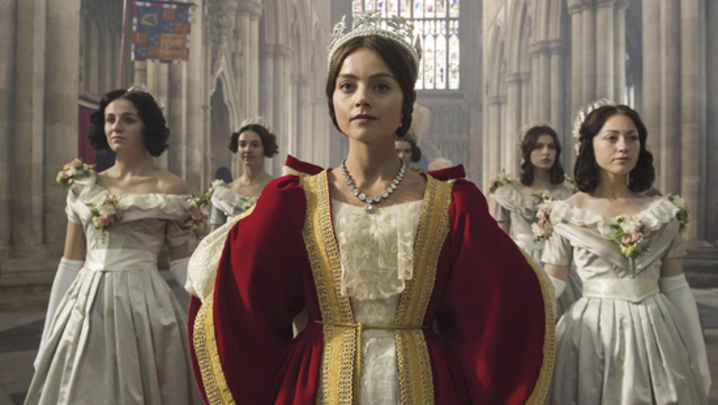In turbulent times, the BBC should play to its strengths in trusted news and national storytelling
Earlier, the RTS convention had been told that, as a brand, Netflix today enjoyed the same high levels of public trust as the BBC. As for the TikTok-using, mobile-addicted members of Generation Z, the BBC looked to be completely under the radar.
Now it was the time for Tony Hall, the BBC’s Director-General, to respond. He did so in a wide-ranging, troop-rallying speech, and argued that, in today’s age of uncertainty, characterised by propaganda and disinformation, the BBC and public service broadcasting were more important than ever.
In this landscape, Hall insisted, opportunities abounded for the BBC. Trusted, accurate news and storytelling reflecting the lives of people in the UK were vital to inform and entertain British audiences. Fleabag, days later a multiple award-winner at the Emmys, was one show that exemplified the best of home-grown creativity. “If – going forward – we get our storytelling right, and harness the power and potential of British creativity, then we can help ensure that the UK is well placed to take a lead in the next economic revolution,” he said.
The UK was one of the world’s most creative digital players. It had the power and potential to own and exploit an abundance of intellectual property.
'[iPlayer] offer the very best of the BBC'
Referring to what he called the second wave of digital disruption, as Disney and Apple prepare to launch their direct-to-consumer services, the BBC leader highlighted the strength of the corporation’s own range of content across TV, radio and online.
The iPlayer was changing from a catch-up service into a destination in its own right. “iPlayer is going to be total TV,” predicted Hall. “It will offer the very best of the BBC – all in one place – playing to our strengths: our liveness, the breadth of our genres and storytelling, the fact that we’re both local and global.”
BBC News online was more popular for young audiences than either YouTube or Facebook for news, according to recent research by the Reuters Institute.
On the sensitive topic of diversity, the DG claimed that the BBC’s 50:50 project had transformed the balance of male and female contributors across the BBC in a year. “Radio 2’s on-air line-up is now radically different. Twenty per cent of our highest-profile presenters are from BAME backgrounds,” he added.
But how does the corporation remain successful globally when faced by new competition, Hall asked rhetorically. “I believe we’ll do it by doing something different: by being the best people to tell the stories of the UK to the world. And by telling the ‘world’s stories’ to the world, but with a distinctively British set of values.”
Perhaps the BBC’s most important global role was in news, he argued. New investment by government in the World Service had boosted audiences by 13% in one year, but Hall hinted that more funds would be needed.
He wanted the BBC to help make the UK “a focal point for the fight-back against disinformation and propaganda”. Deliberate disinformation threatened human life and the integrity of the democratic process. The corporation wanted to lead and support academic research on the impact of fake news.
Summing up, Hall namechecked recent highlights: the launching of BBC Studios on the path to success, new investment in the UK nations, more money for children’s content (including the launch of a new app), integrating the bulk of UKTV into BBC Studios, and the coming launch of BritBox (its online partnership with ITV).
On the vexed question of free television licences for the elderly, the DG said the BBC had spent a year carefully considering options for the over-75s. It had made a clear decision: “We have carried out the agreement we had with the then Conservative Government to the letter.”
Finally, Hall stressed why it was vital for the BBC to be a place where the most talented people wanted to work, and do the work they would be remembered for. He said: “We start with a great advantage. People want to join an organisation that has a public purpose, a social purpose, and a clear mission.”
In Session Thirteen, Tony Hall, Director-General of the BBC, was interviewed by Beth Rigby, political editor of Sky News. The producers were Sue Robertson and Martin Stott. Report by Steve Clarke.
Q&A
Question
Beth Rigby: What do you make of the fact that No 10 will not put forward the Prime Minister to appear on Today?
Answer
Tony Hall: It is really important that people put themselves up…on Sky, Channel 4, ITV, as well as the BBC, for long-form interview.…
I think those places where people in power can be quizzed at length, not just on the hop somewhere in a grabbed moment, are absolutely key and we should do everything we can to encourage politicians to come on.… We’ve got to make a song and dance and say you should come on these programmes.
Question
Beth Rigby: How can you fulfil your part of the bargain to hold power to account if those in power dodge your shows?
Answer
Tony Hall: I agree with you on the problem. We’ve decided that Andrew Neil is coming back on BBC Two once a week at 7:00pm.…The one place where you had a head-to-head, forensic examination of the policies that each candidate [in the Conservative leadership campaign] was putting forward was under Andrew Neil.
I also think the point at which those seeking your vote meet the audience – the Question Time format – is really important, too.
Question
Beth Rigby: Trust in news organisations is contested as never before. What does the BBC do regarding accusations of institutional bias?
Answer
Tony Hall: Support your journalists.… Remind people of the values you stand for. Our newsrooms need to do more to explain what good journalism is and the pressures on journalism.…
We’ve also got to stand back – there is so much passion and noise out there. Evidence-based journalism is how we operate.… That’s getting even more difficult in a world where you see the polarisation of “I don’t want to hear anything I disagree with”.…
When I look at our data, people may not come to the BBC first, but they come to us to [check out] what’s happening.
Question
Beth Rigby: Dorothy Byrne asked in her MacTaggart Lecture if it was time to start using the L-word when broadcast journalists are interviewing politicians. Is it?
Answer
Tony Hall: Well briefed, policy-driven interviews, where people are held to account by people who know what they are doing, are absolutely essential.
Our job is also to say: “How can X argue that and Y argue that?” We should call those things out and do thorough things such as Reality Check.… In an era of misinformation and spin we need to do that more.
Question
Beth Rigby: How would you feel if one of your presenters said to a politician being interviewed: “You’re a liar”?
Answer
Tony Hall: I wouldn’t use the word “liar”. I’d say, “Just hang on, this is not what you said [before]”. Andrew Neil already does it., presenting people with the evidence of what is actually happening.
[Recall] what Andrew Marr said to Nigel Farage two or three months ago, when he said: “Hold on, here’s what you said in the past, this is what you’re saying now.”
I go back to evidence-based journalism and thoroughly holding people to account. We need to do that more today than at any other time in our history, because there’s just so much rubbish out there.

